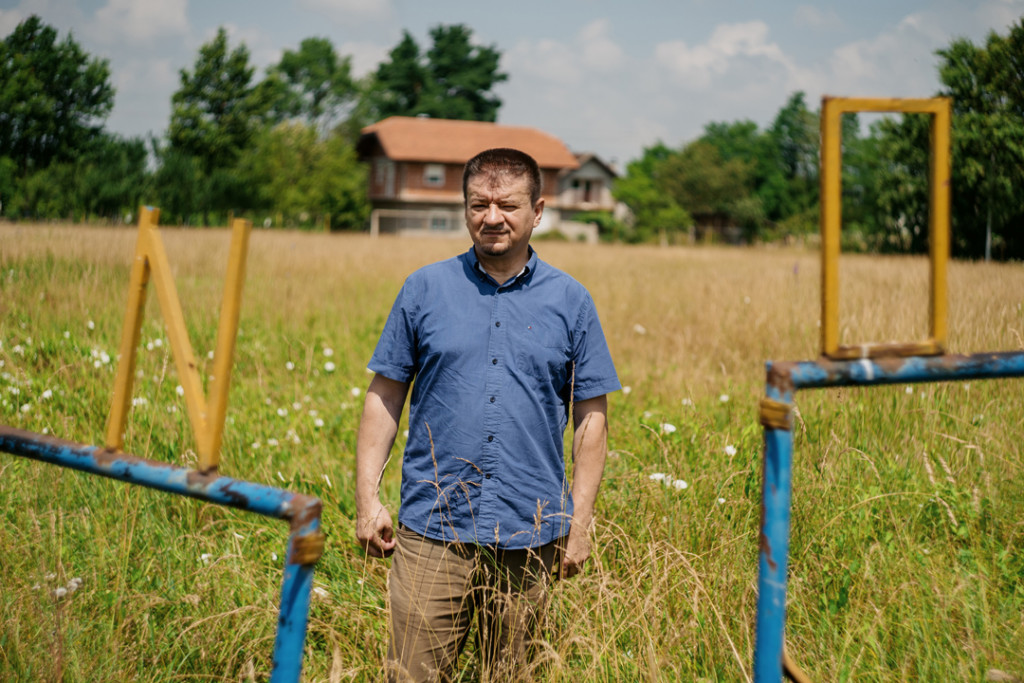
By Osman Zukić / Photos: Almir Kljuno
Edin Ramulić is from Prijedor.
When the soldiers of the Army of the Republika Srpska came to his village Rakovčani to take adult men of non-Serb ethnicity to the Keraterm camp, they took his brother, uncle and four cousins. He was sent to the Trnopolje camp, together with women and children from his village and surrounding villages. He stayed there for three nights. Later he said that what saved him was that his face looked like a child’s face, even though he was 21 years old at the time and had served his military service in the Yugoslav People's Army.
He has found some relatives in mass graves near his hometown. He is still looking for his brother.
Branko Ćulibrk is also from Prijedor.
He was seven years old when the war started in his town. A little later, he found out about his father's death. Even today, he does not understand why his father, who had taught him the values of solidarity, brotherhood, togetherness and understanding, joined the Army of the Republika Srpska from the very beginning.
In his early formative years, he began researching his father's role in the war. He has not found any information yet. Today, he runs the Youth Center KVART in Prijedor.
What the two of them do together in their town surpasses projects and derives primarily from their experiences; from their reflections on what befell them in this world; from digging deep inside themselves to find an answer to the question of how to proceed with the world; from their effort to live with the world again.
The memorial to the children of Prijedor
It is about to rain. There are around ten people in the KVART offices, including Branko Ćulibrk and Edin Ramulić. One is making final corrections to his speech that he will read in the main town square in about two hours. The other's phone is ringing non-stop. Journalists want to get his timely statement.
There are 102 roses on the desk. Each rose for one child that was killed in Prijedor in the period 1992-1995. In their name and in the name of their parents, today, as in previous years, a protest march is organized to request the approval to have the memorial for all the children that were killed in Prijedor.
"From the very beginning, we have supported the initiative of the parents of the killed children," explains Ćulibrk, "and to have the memorial is our primary goal, until we reach it."
He emphasizes that he will not get tired of this fight because it is completely justified to have the memorial for the killed children in this town.
"We want Prijedor to finally erect monuments for innocent civilians, who were killed because of their name and surname, and not only for soldiers, like all the monuments that have been erected in the town so far," adds Ćulibrk.
They insist to have the memorial for all the children of Prijedor, regardless of their ethnicity, but they have been facing resistance from the town government for ten years. Although there was some dialogue before, today they are just ignored.
The memorial will not be erected only to the killed children from Bosniak families, but to all the children of Prijedor and this, they claim, is one of the reasons why the memorial is not acceptable even to Bosniak politicians.
"Unfortunately, no one wants such memorials, no one wants to approach the process of commemorating civilian victims of war in a human way, beyond ethnicity," says Ramulić. "On the other hand, we commemorate the children unlike any memorial, any museum... We talk about the killed children of Prijedor in public and their names are heard through various artistic and documentary expressions."
Ramulić and Ćulibrk will lead the protest march "White Armband Day" on behalf of the initiative "Because I care", as in previous years.
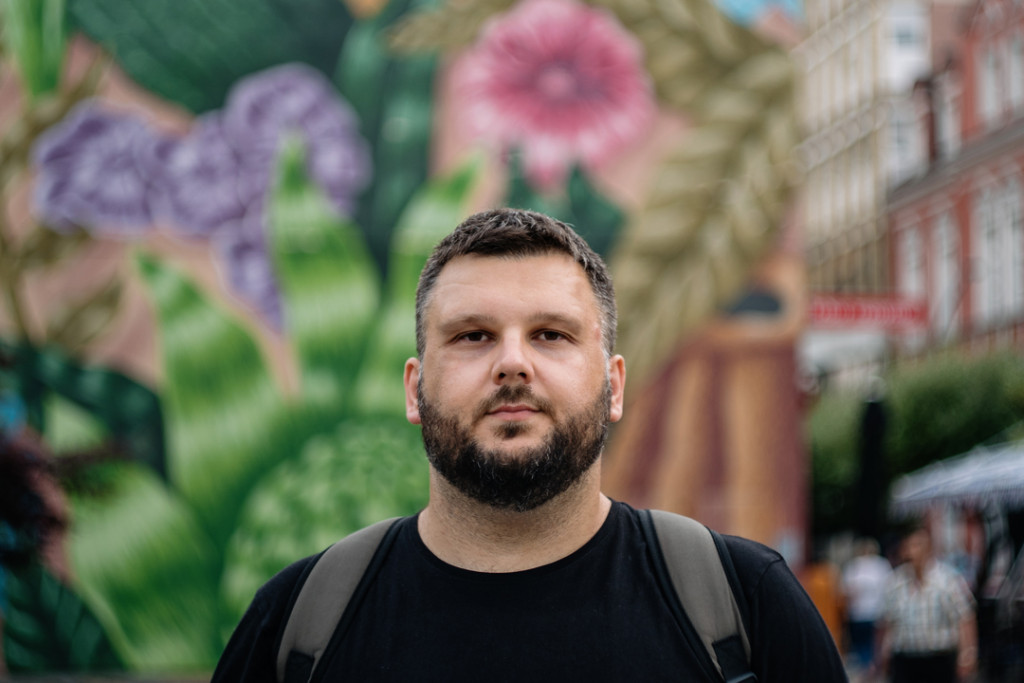
The White Armband Day
We have tied pieces of white cloth around our upper arms and we are walking out into the street. It is starting to rain.
The "White Armband Day" has been observed since 2012. It started when the town government banned a commemorative gathering for civilian victims of war in Prijedor.
The organizers emphasize that this a protest march for the rights of the survivors to dignity and memory, a protest demanding that commemorative practices should be human and not political, national or religious.
The "White Armband Day" is a protest for all those whose basic human rights are threatened.
"We have found a way to organize a protest without a public gathering. We put white armbands on our upper arms and we walk. Nobody can forbid us to do it," says Ramulić.
The "White Ribbon Day" is observed every year on the last day of May. On that day the Crisis Staff of the Municipality of Prijedor issued an order for non-Serb population to display white sheets on the windows of their houses and to put white bands on their upper arms when they go outside.
This happened after fifteen Serbian soldiers were killed in May 1992.
White sheets and white armbands
People of different ethnicities lived in Prijedor and it was difficult to identify who is who. Because this order was given, the majority of non-Serb population suffered casualties until the end of the war.
"There were earlier plans to ethnically cleanse Prijedor and local villages. But this accelerated the process and procedures. In this way the Serbian authorities did in two to three months what could have dragged on for half a year. For the authorities it turned out to be a very efficient way to mark the population", explains Ramulić.
Several hundred people have gathered in the town park where the memorial for the killed children of Prijedor is planned. About ten of them are wearing green vests, including Ramulić and Ćulibrk. They are explaining the march plan into a megaphone, emphasizing that only representatives of the initiative "Because I Care" and a representative of the parents of the killed children will speak in the town square.
At this gathering, no political and religious officials are allowed to speak except if a member of the BiH Presidency showed up.
"The White Armband Day has become one of the most well-known commemorations in the countries of the former Yugoslavia because we have not allowed nationalists, politicians and extremists to take it over," Ćulibrk says later in his speech.
The rain is intensifying and there is no indication that the weather is clearing. A river of umbrellas is moving towards the main town square. Only on one window a white sheet is displayed. It will turn out to be the window of the KVART office. In the town square, we can hear the names of the killed children and their ages.
The youngest is a three-month-old baby and the oldest is 17 years old.
"The White Armband Day was primarily conceived as a protest march for recognition of civilian victims of war and for demanding the right to dignity and memory of these people," emphasizes Ćulibrk.
Alongside the gathering, everyday life is taking place. People are entering and leaving shops, some people are hiding from the rain. Messages are switching on billboards, music is playing in cafes.
It is like this every year.
There is no order, but it happened
Is there a recorded order to mark non-Serb population with white armbands?
"There is no order for many other things, but they happened. On that day, people were marked, they were identified, very efficiently. We did not commemorate it until 2012. We did not, although it was recorded in the judgment against Duško Tadić. It is recorded now, in the final judgments against Ratko Mladić and Radovan Karadžić. "The white armbands in Prijedor were proved before the Hague Tribunal," explains Ramulić.
First of all, it was proved by testimony and cross-examination with all other evidence. There was no dispute in any of the cases.
"It is an unquestionable fact. The judicial proceedings cannot be invalidated by any claim, any interpretation by new historians or anyone."
This is why white armbands are a basic symbol of the protest march. The organizers see in this, primarily, ethnic discrimination and they recognize its forms even today in Prijedor.
After the speakers read their speeches, after we heard the names of every child that was killed in Prijedor, after the people who gathered each took a rose from the main town square, the rain stopped.
Somebody said:
"Take one rose each, otherwise waste workers will collect them in trash cans as soon as we leave."
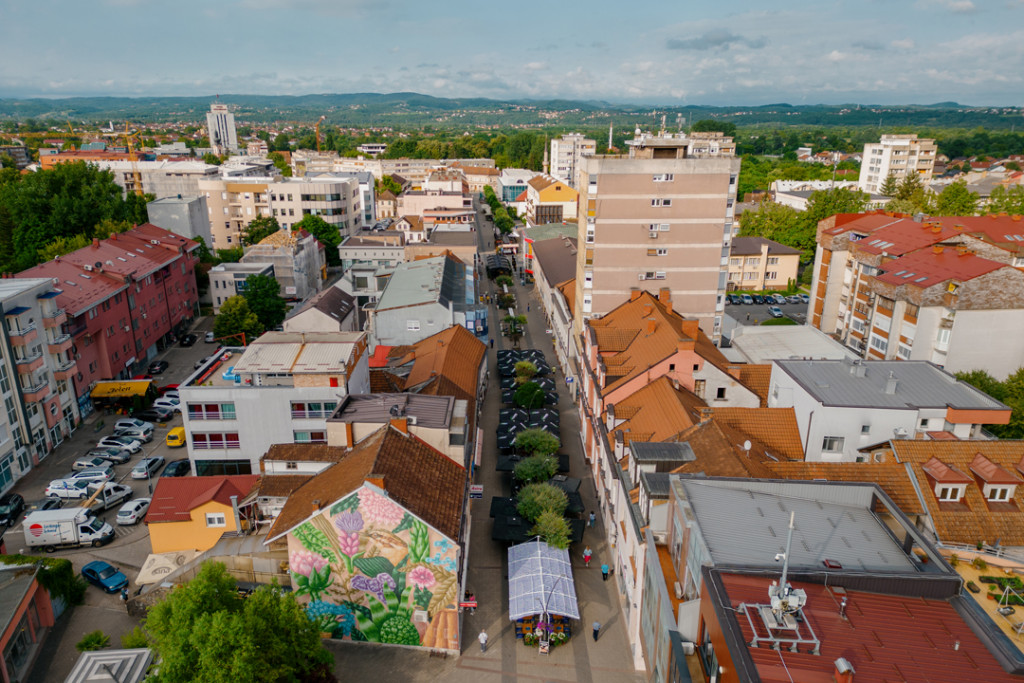
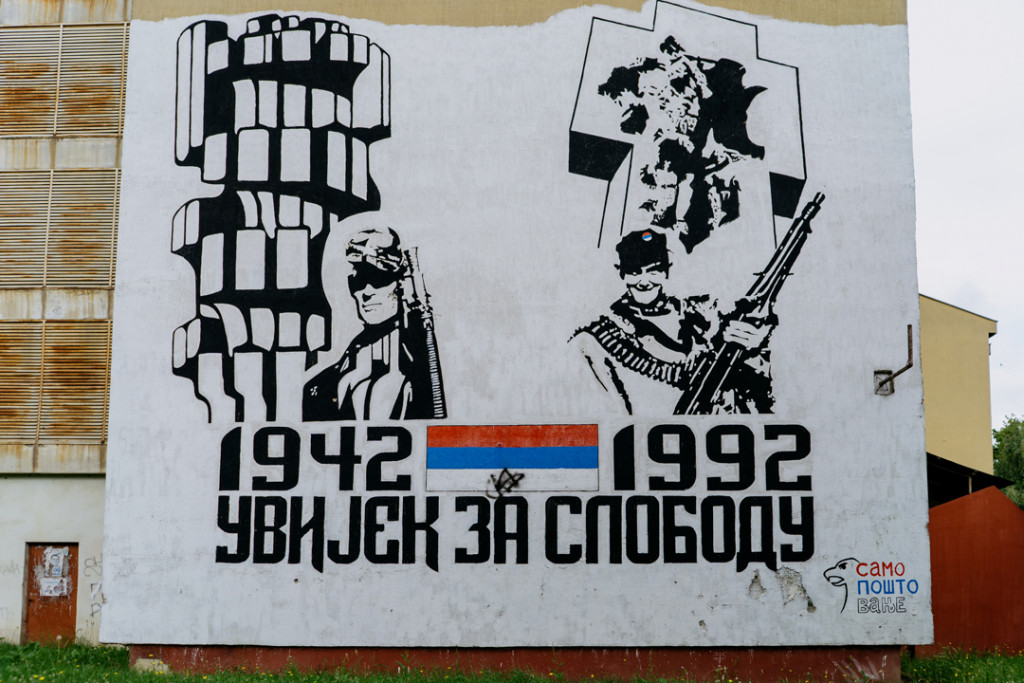
Peace activism
Branko Ćulibrk describes himself as a peace activist. He says that in the beginning it was difficult for him to understand what peace activism meant, and then to integrate that identity into his life. When a child, whose father died as a soldier, deals with the problems of the past in a supranational, apolitical, and above all human way, then it becomes incomprehensible in places like Prijedor.
Even condemnatory.
"I needed to understand why my father's first neighbors suddenly became enemies. Dealing with the past, I stand on the side where I am not expected to stand at all", admits Ćulibrk.
Something completely different was expected from him.
"In this environment, it was completely expected from me to harbor hatred towards others and those who are different precisely because of my father's death" he says.
This disloyalty brings him trouble today.
"Today, I have the most problems because I stand and speak for the rights of those who were killed primarily because of their names."
And for the rights of the survivors.
"They have been actually pushed to the margins of this society. My voice, as someone who is perceived the way I am perceived in this local environment, is much stronger than the voice of those whose families suffered immense casualties."
This society perceives him as a Serb, as the child of a fallen soldier of the Army of the Republika Srpska.
Youth Camp
In addition to the "White Armband Day" they also organize a camp for young people who spend seven days in Prijedor and Kozarac. They listen to lectures about killings in the war, they speak with witnesses of camp imprisonments and they discuss how to deal with the past and how to commemorate the victims.
They visit the camps Keraterm, Trnopolje, Omarska and monuments in the vicinity of Prijedor.
"When we started to talk about the past the way we do, with our names Nikola, Goran, Branko, Zorana, we all encountered a lot of problems and resistance. They still threaten us to this day. In the past, there was also physical violence. They broke into our office with the intention of destroying it. Attacks are more frequent when we organize protests in the streets," says Ćulibrk.
On the other hand, Edin Ramulić is one of the lecturers at youth camps. With him and a group of twenty young people from the whole region, we visit locations of killings and imprisonments. The locations of killings are mostly not marked, and even if they are, it is done in such a way that it is hard to know what actually happened there.
For Ramulić, the only possible approach to commemoration is one that is free from political, religious and ethnic influence.
"First of all, that would make it possible" he explains "to have empathy from those who are of the same ethnicity as the perpetrators of serious war crimes, which is why these commemorations should take place."
Why are these commemorations important?
"It's one thing to pay respect to the victims, it's one thing to honor the families of the victims, the survivors, but I think that the commemorative practice is far more important for people here to deal with all the damage the war caused us, in every local community."
For Ramulić, it is an opportunity for people to learn that there were camps here, that there were crimes, that there were civilian casualties.
"If it was organized by political parties, if it was organized by religious communities, then there would be no chance of having empathy and acceptance from the other side."
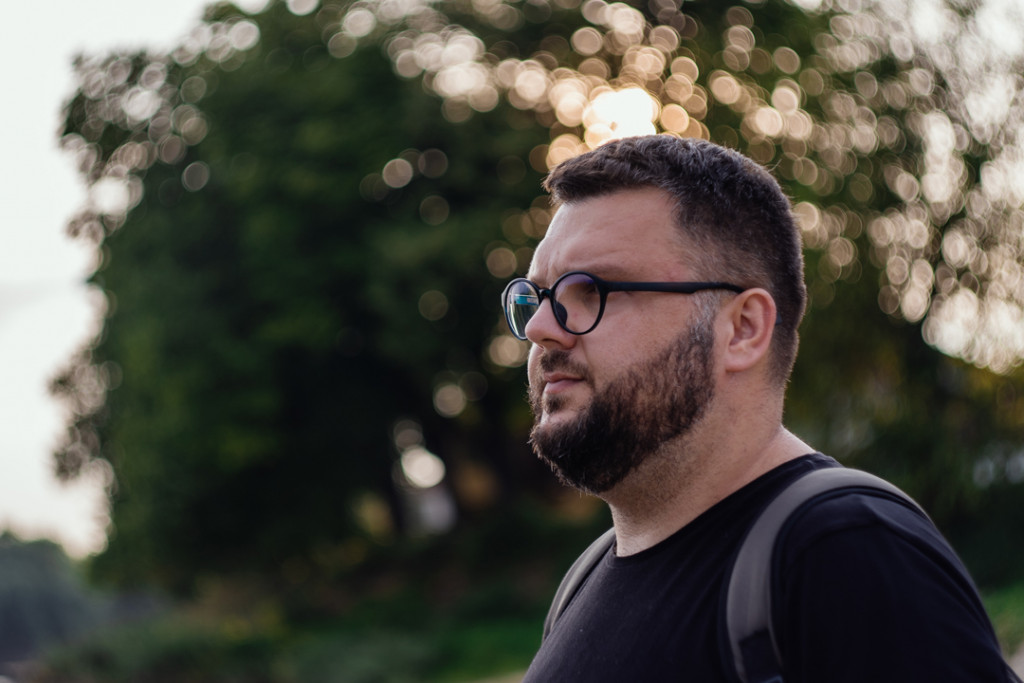
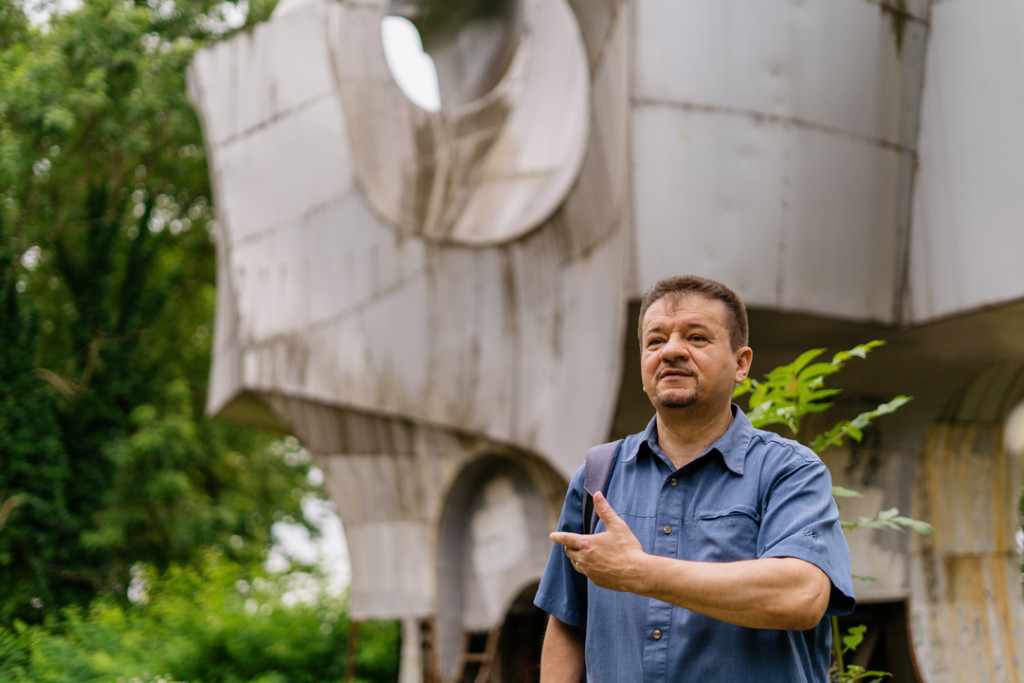
Unresolved issues of the nineties
In Prijedor, the issues of the nineties and the unresolved issues of war economy are a very current and lively topic about which everyone has something to say.
Ćulibrk admits that he is motivated to engage in peace activism because there is a lot of social injustice in his town and because this injustice cannot be resolved without resolving the issues of the past.
"This is when I understood how important it is for us to deal with the issues of the past, because only when we resolve them can we raise social and economic issues and enable the process of social development in which we will strive for equality, where we will strive for prosperity, for the dignity of human life. "
In Bosnia and Herzegovina, the issues from the 1990s leave room for manipulation and they prevent further economic and social prosperity.
"We decided to offer a completely civil, a completely human perspective in the process of dealing with the past, and that was the foundation of the initiative."
The idea is to raise the issues of crime, casualties, guilt, responsibility, etc., from a completely unexpected political position.
"This approach," he continues, "does not suit these political structures at all because it offers the possibility of resolving conflicts and establishing the truth, and thus does not leave room for manipulation."
As a rule, when issues of social injustice are raised in this town, the story of war and guilt starts.
"I strongly believe that we will move forward as a society when we are able to think about the pain of others and to understand their suffering," adds Ćulibrk.
Help me to find
A total of 3,176 civilians were killed in Prijedor during the war. Five hundred are still missing.
From the Tomašica mass grave, which was already discovered in 2004, 435 victims were exhumed. The rediscovery of that mass grave followed immediately after the first public gatherings of activists in Prijedor. At some protests, they carried banners that read: "Help me to find."
Edin Ramulić sued the state of BiH before the European Court of Human Rights in Strasbourg for doing nothing to find his brother. The lawsuit was rejected with the explanation that the state adopted the law on missing persons, established the missing persons commission, and that the state is doing everything to clarify the fate of missing persons.
"Yes, but in my brother's case they still have not done anything," says Ramulić and adds:
"So, my whole world, my male family, from the time before the war, was destroyed in the war. All of them were victims of that nationalist, inhumane behavior that we had during the war, unfortunately. War always causes such casualties."
The experience of imprisonment in the camp and the death of close ones are his motivation. He talks about it because he wants people to feel disgust against war and hatred.
"First of all, they were my motivation to never leave this country. They were civilian victims of war, as people who did not contribute to it in any way, with their political or military involvement, and who did not deserve to be killed and tortured before that. Their death will not be in vain, if their death, through what I do and say, serves to make people look at war with disgust."
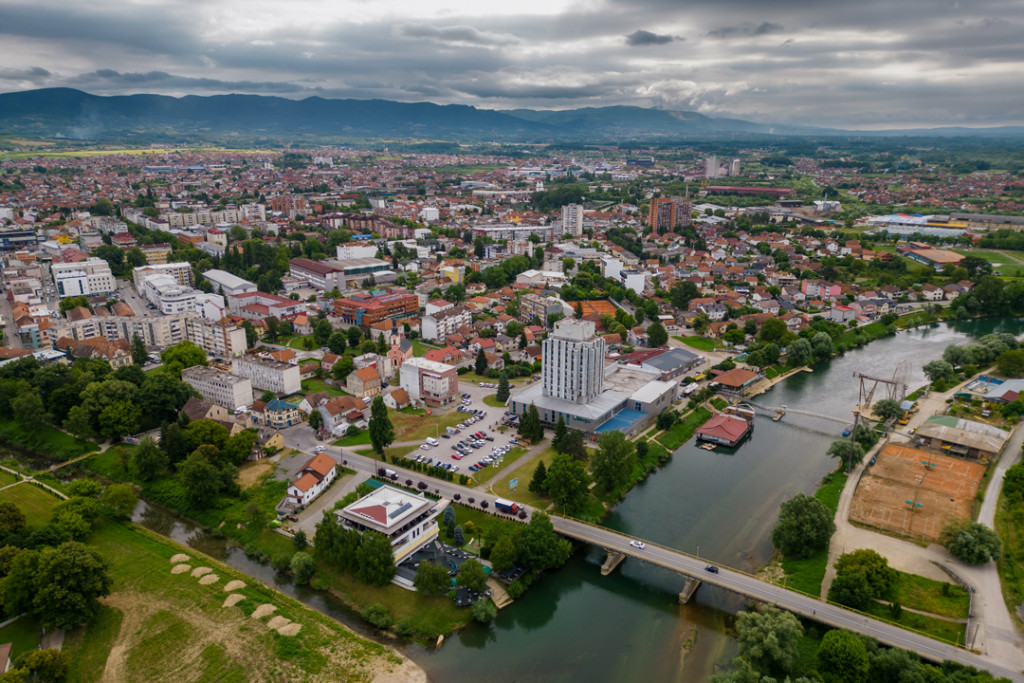
I love my town
Ramulić came to Prijedor for the first time as a journalist after the war in 1997. He says that that moment was the moment when he felt free again in his town.
"Even though we are a local community with the most convicted war criminals, the most camps, and the most victims of camp torture, we have an opportunity again to think better and build our lives that way. As much as Prijedor keeps me here because of all those pre-war memories that I had, which are dear to me, there are just as many new beautiful memories, friendships. It prevails over sadness. That is why, because of everything this town meant to me before the war and because of what I have here today, I love my town and I will never stop loving it."
If we had started telling this story twenty years ago, it would have been a cliché. Today, this story makes a lot of sense, because we know how unsuccessful were the reconciliation projects that were implemented in places like Prijedor, mainly financed from the funds of international organizations.
If you ever go to Prijedor, its geography will make you think about casualties, camps and killings. But you can also think about Branko Ćulibrko and Edin Ramulić, who give new characteristics to its geography, who make its relief of human relations passable and bequeath to the future generations a town on the Sana that is really beautiful, which is all that it really should have been.
(A story from the author's series "Activism in BiH: Lessons Learned and Missed", created with the support of the European Endowment for Democracy.)
